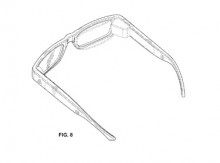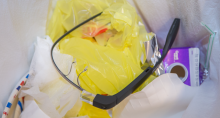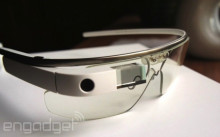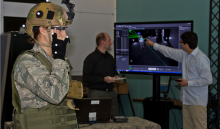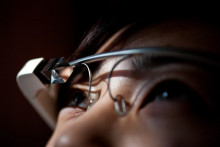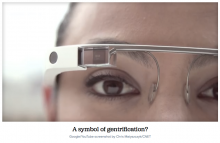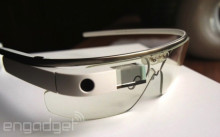Google gets patent to make Glass look like ordinary specs
Google appears to be redesigning Glass to make the wearable computer look less nerdy and more like ordinary eyeglasses.
With the company's computerized eyeglasses, users can take photos and video, view maps and weather reports and read news stories with a tiny see-through display screen that sits above the user's right eye.














































